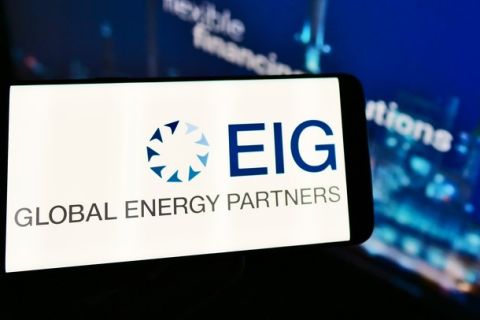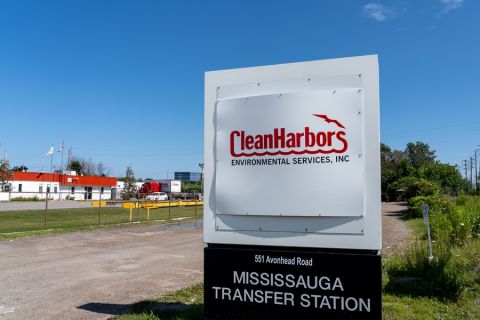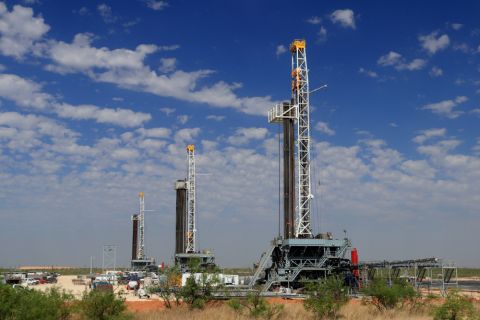
One of the three research analysts covering SandRidge has written off the deal, acknowledging the merits of concerns by investors including Carl Icahn. (Source: Hart Energy)
Editor's note: This article has been updated to include a Nov. 30 statement from SandRidge Energy.
SandRidge Energy Inc.’s (NYSE: SD) plan to pay $746 million for Bonanza Creek Energy Inc. (NYSE: BCEI) may have hit an impassable roadblock: roughly 28% of the company’s shareholders have vowed to vote down the merger.
The most recent opponent of the deal was activist investor Carl Icahn, who on Nov. 24 disclosed his companies own 13.5% of SandRidge’s stock and scolded SandRidge for entering a “seemingly ill-advised, dilutive and value-destructive acquisition and why they believe the transaction is anything more than an entrenchment technique.”
Mizuho energy analyst Tim Rezvan has already written off the deal, saying in a Nov. 27 report that his firm has stripped the acquisition from its models for SandRidge due to “activists’ noise” creating deal uncertainty.
“Given four owners controlling 27.6% of SandRidge shares have voiced opposition to the Bonanza Creek acquisition, we strip the acquisition from our model” and have reverted back to an earlier standalone company model. “We acknowledge the merits of SandRidge’s shareholders’ opposition to the merger.”
RELATED: Carl Icahn Responds To SandRidge Energy's Poison Pill Move
The deal requires a majority of shareholders to approve. To derail the deal with an absolute majority, opponents would need 26.4% of all outstanding shares to vote against the merger.
“The intensity of investors’ opposition to this deal makes us believe SandRidge may have to revise terms to get the deal done or may have to walk away altogether,” he said.
Gaining 'Mindshare'
SandRidge said it is committed to the merger.
"Our independent board thoroughly evaluated and unanimously supports the Bonanza Creek transaction," the company said in a Nov. 30 press release. "We look forward to filing our proxy materials before year end, which will give shareholders the ability to fully review the merits of the transaction."
In an email, a Bonanza company spokesperson told Hart Energy on Nov. 28 that the company also remains “fully committed to the pending transaction with SandRidge, which we believe will unlock significant value in the near and long term for our shareholders.”
“Bonanza has high-quality Denver-Julesburg (D-J) Basin assets, and together with SandRidge’s [northwest] Stack and North Park assets and substantial cash flow, we believe the company will be well-positioned to deliver high return, oil-weighted production growth while maintaining its balance sheet strength.”
However, Rezvan said the price for Bonanza and the impact on SandRidge’s under-levered balance sheet appear too great for some appetites. The company has also struggled to gain “mindshare” among energy investors, which has left it below its true market value.
SandRidge suffers from a combination of its “stigma/history related to the bankruptcy and extremely low liquidity.” As one of three research analysts covering the company, “investor interest in SandRidge shares … to be blunt, it is almost non-existent,” Rezvan said.
Nevertheless, Icahn has shown a keen interest in buying the stock since the merger was announced.
Icahn-controlled entities owned about 1.75 million shares prior to the deal’s announcement on Nov. 15. Since then, Icahn has steadily added 3 million shares for a total of about 4.8 million. Companies tied to the investor have spent nearly $50 million on the shares.

Icahn weighed in on the deal following activist investor Fir Tree Partners, which has been hostile to the deal. Fir Tree, which owns about 8.3% of the company, said Nov. 20 that the deal makes “no economic or strategic sense.” Among its complaints, Fir Tree says the acquisition represents a 75% premium over creditors who evaluated Bonanza six months ago at $421 million. Susquehanna Advisors and Cannell Capital are also opposed to the deal.
The deal also raised some concerns for analysts when it was announced.
Mike Kelly, a senior analyst at Seaport Global Securities, said the deal’s $4,800 per acre price compared well with recent transactions of up to $17,000 per acre. However, “we think the rationale for doing the deal is more challenged and it would ultimately result in degradation to SandRidge’s NAV—so there is risk involved in this deal from that perspective,” Kelly said in a Nov. 15 report.
Drawbridge Raised
The company’s board enacted a plan Nov. 27 to shield itself from further outside interference.
“The rights plan is designed to deter the acquisition of actual, de facto or negative control of the company by any person or group without appropriately compensating its shareholders for such control,” Sandridge said in a news release.
Under the terms of the rights plan, the company will cap a person or group from acquiring 10% or more of the company’s common stock. Shareholders who already have a 10% or greater interest are grandfathered by the plan. The plan requires shareholder approval in 2018.
The company also said that its policy is not to comment on specific discussion with shareholders but will “continue to welcome all constructive input furthering the goal of enhancing shareholder value and positioning SandRidge as a leading oil and natural gas exploration and production company.”
SandRidge stock fell 2.8% to $18.37 following the adoption of the plan, Baird Equity Research said in a Nov. 28 report. Morgan Stanley is serving as the company's financial adviser, and Vinson & Elkins LLP is serving as its legal adviser.
Darren Barbee can be reached at dbarbee@hartenergy.com.
Recommended Reading
EIG’s MidOcean Energy Acquires 20% interest in Peru LNG
2024-02-08 - On top of acquiring a 20% interest in Peru LNG, MidOcean Energy is also in the process of acquiring interests in four Australian LNG projects.
Clean Harbors Closes $400MM Acquisition of HEPACO
2024-03-25 - Clean Harbors acquired HEPACO for $400 million, adding complementary services for environmental remediation and emergency response in the Eastern U.S.
Marketed: Anschutz Exploration Corp. WI Opportunity in Converse County, Wyoming
2024-01-26 - Anschutz Exploration Corp. retained EnergyNet for the sale of its WI participation option in Converse County, Wyoming.
Excelerate Energy, Qatar Sign 15-year LNG Agreement
2024-01-29 - Excelerate agreed to purchase up to 1 million tonnes per anumm of LNG in Bangladesh from QatarEnergy.
UK’s Union Jack Oil to Expand into the Permian
2024-01-29 - In addition to its three mineral royalty acquisitions in the Permian, Union Jack Oil is also looking to expand into Oklahoma via joint ventures with Reach Oil & Gas Inc.





